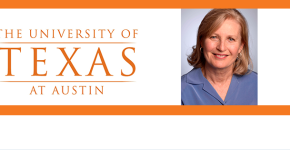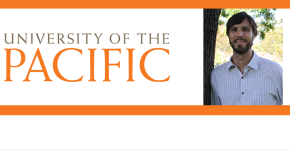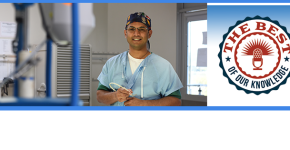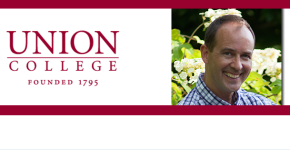Author: Academic Minute
-

Kevin Wright, Arizona State University – Prisons and Poor Communities
How do the communities prisoners come back to compare to the prison they just left? Kevin Wright, assistant professor in criminal justice at Arizona State University, examines this pivotal factor in reforming our criminal justice system. Kevin A. Wright is an assistant professor in the School of Criminology and Criminal Justice at Arizona State University. …
-

Jean M. Twenge, San Diego State University – Working Mothers
Are attitudes on working mothers changing? Jean M. Twenge, San Diego State psychologist, is delving into this question. Jean M. Twenge, Professor of psychology at San Diego State University, is the author of more than 100 scientific publications and the books Generation Me: Why Today’s Young Americans Are More Confident, Assertive, Entitled — and More Miserable…
-

Jeff Colgan, Brown University – Female Professors
Do female professors differ from male professors in how they assign their coursework? Jeff Colgan, assistant professor of political science and international studies at Brown University, examines if female professors assign more work from female scholars. Jeff Colgan is Richard Holbrooke Assistant Professor of Political Science and International Studies at the Watson Institute of International…
-

Jackie Dudley, University of Texas at Austin – Gene Therapy
An accidental discovery could lead to big advances in treating viruses. Jackie Dudley, professor of molecular biosciences at the University of Texas at Austin, discusses this exciting finding. Jackie Dudley is a professor of molecular biosciences at The University of Texas at Austin whose research focuses on retroviruses, such as human immunodeficiency virus (HIV), and…
-

This Week on The Academic Minute (2015.12.7)
This Week on The Academic Minute 2015.12.7 Monday, December 7 Jackie Dudley of the University of Texas at Austin discusses gene therapy. Tuesday, December 8 Jeff Colgan of Brown University discusses how male and female professors differ on the coursework they assign their students. Wednesday, December 9 Jean Twenge of San Diego State University examines how attitudes towards working mothers have changed.…
-

The Academic Minute for 2015.11.30-12.4
Catch up with The Academic Minute from 11.30 – 12.4 Monday, November 30 Montserrat Rabago-Smith – Kettering University Antioxidants Dr. Montserrat Rabago-Smith is an Associate Professor of Organic Chemistry at Kettering University in Flint, Michigan. She is currently collaborating with Dr. Lihua Wang and Dr. Veronica Moorman in an attempt to specify the potential preventative relationship between…
-

John Mayberry, University of the Pacific – Math & Sports
Math and sports are starting a new relationship. John Mayberry, assistant professor in the department of mathematics at the University of the Pacific, explains how math is doing wonders for his school’s water polo team. The work by John Mayberry, an associate professor of mathematics at University of the Pacific, and Pacific’s water polo coach,…
-

Llewellyn Padayachy featured on The Best of Our Knowledge
As always, host Bob Barrett selects an Academic Minute to air during The Best of Our Knowledge. Each week this program examines some of the issues unique to college campuses, looks at the latest research, and invites commentary from experts and administrators from all levels of education. For this week‘s edition (#1315), Bob has selected Llewellyn Padayachy‘s segment…
-

Claudia Hilton, University of Texas Medical Branch – Exergames
Can an exergame help autistic children get active? Dr. Claudia Hilton, associate professor in the occupation therapy department at UTMB, describes what an exergame is and how it’s helping these children get up and move. Dr. Claudia Hilton is an associate professor in the Occupational Therapy Department at the University of Texas Medical Branch in…

